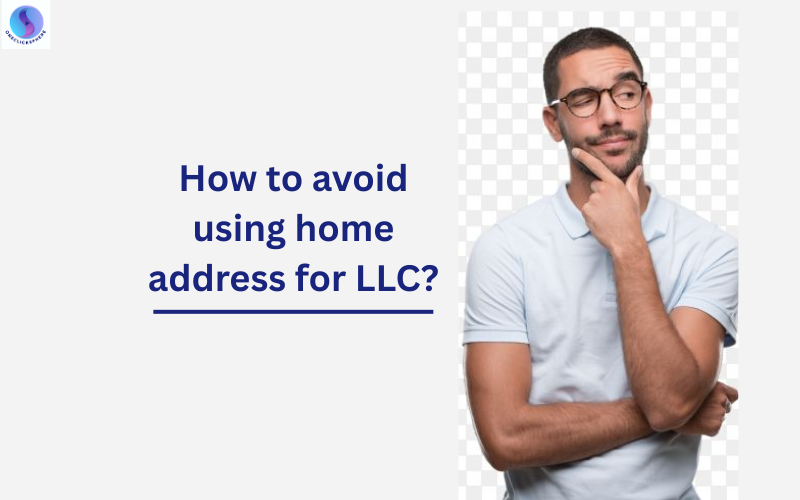Thinking of starting your own business but don’t want your home address out there for the world to see? You’re not alone. Many business owners today are searching for how to avoid using home address for LLC registration. Your home should stay private. When you use it as your business address, you open the door to privacy problems, unwanted visitors, and a less professional image. Luckily, there are smart and simple options to keep your personal space protected while still running your business the right way.
Why You Shouldn’t Use Your Home Address for LLC?
Using your home address when starting your LLC might seem like the easiest option. You’re already living there, and it saves money. But this choice can lead to problems down the road. Here’s why it’s better to use a different address.
1. It Puts Your Privacy at Risk
Once you register your business, your address goes into public records. Anyone can look it up online. That means strangers could find out where you live. This can lead to junk mail, annoying sales calls, or even unwanted visitors.
2. It Can Hurt Your Business Image
People judge businesses by how they look—online and on paper. If they see a home address instead of a real business location, they might not take you seriously. It could make your company seem small or unprofessional, even if you’re great at what you do.
3. It Mixes Business with Personal Life
Using your home as your business address can blur the line between work and personal life. It makes it harder to keep things separate—like your work time, your home life, and your finances. This can create stress and confusion later, especially during tax season or legal issues.
4. You Might Face Local Rules or Restrictions
Some neighborhoods don’t allow people to run businesses from home. Your city or homeowners’ group might have rules against it. If you break those rules, you could be fined or asked to move your business.
5. It Could Affect Legal Protection
One reason people form LLCs is to protect their personal stuff (like their house or savings) from business problems. But using your home address might make it harder to show that your business is separate from your personal life. That could weaken your legal protection in a lawsuit.
Legal Requirements for LLC Addresses
When you start an LLC, your business address must follow certain legal rules. This helps you stay in good standing with the state and the IRS. Here’s what you need to know.
Registered Agent Address Requirements
Every LLC must name a registered agent. This person or service receives official mail for your business. That includes tax letters, legal papers, and government notices.
The registered agent must have a real street address in the state where your LLC is formed. This cannot be a P.O. Box. The address must be open during regular business hours so someone can accept important documents.
You can act as your own agent, but many business owners choose a registered agent service. This helps keep your home address private and makes sure you don’t miss anything important.
State and IRS Compliance Needs
Different states and the IRS have rules about what kind of address you can use.
The IRS usually wants a physical address for tax forms. Some states allow you to list a mailing address too, but you still need a real location for official records.
If you use different addresses in different places, it can cause confusion. Always make sure your address is the same across all documents—like tax forms, your LLC filing, and your yearly reports.
Keeping your business address correct and up to date helps you avoid delays, penalties, or legal trouble.
Best Alternatives to a Home Address for Your LLC
You don’t have to use your home address to register your LLC. There are many better options that keep your personal life private and make your business look more professional. Here are some of the best alternatives:
1. Virtual Business Address
A virtual address gives your business a real street address, usually in a commercial area. You don’t need to rent an office. These services receive your mail and can send it to you or scan it so you can view it online.
Why it’s a good choice:
- Keeps your home address private
- Makes your business look more professional
- Low cost and easy to set up
Things to watch for:
- Some services charge extra for mail forwarding or scanning
- Not ideal if you need to meet clients in person
2. Registered Agent Service
A registered agent is a person or company that receives legal documents for your LLC. Most states let you use the agent’s address as your business address for official records.
Why it’s helpful:
- Keeps your personal details off public records
- Ensures you don’t miss legal or tax notices
- Usually affordable (yearly fee)
Keep in mind:
- Only handles official documents, not general mail
- You still may need another address for business mail
3. Virtual Mailbox
A virtual mailbox is like a digital P.O. Box. It gives you a street address, not just a box number. You can view your mail online and have it sent to your home if needed.
Good for:
- Businesses that are fully online
- Owners who travel often or live abroad
Pros:
- Offers privacy and convenience
- Lets you handle mail from anywhere
Cons:
- Monthly fees vary by location and service
- Some services limit how much mail you can receive
4. Coworking Spaces
Coworking offices offer shared work areas and business addresses. Many let you use their address to register your LLC and accept mail on your behalf.
Why choose this:
- Gives you a real place to work and meet clients
- Often cheaper than renting a full office
- Access to meeting rooms and business events
Limitations:
- Less private than your own space
- Some locations have rules about using the address for legal filings
5. Renting an Office
Leasing a small office gives you full control over your business location. You can use it for mail, meetings, and daily work.
When it makes sense:
- If you need space for employees
- If you meet clients in person often
Benefits:
- Builds a strong business image
- Keeps personal and work life fully separate
Drawbacks:
- High monthly cost (rent, bills, furniture)
- Long-term commitment
6. Using a Partner’s Address
If a business partner or friend already has a professional location, you might be able to use their address for your LLC.
This works well when:
- You’re just starting out
- You want to avoid extra costs
Be careful to:
- Get written permission
- Make sure it’s allowed by state rules
Which Option Is Right for You?
Think about your budget, how you work, and whether you meet with clients. If you work from home or run a digital business, a virtual address or mailbox is usually enough. If you need a place to work or meet people, a coworking space or small office might be better. Choosing the right address helps protect your privacy, stay legal, and build a strong image for your business from the start.
How to Set Up an Alternative Address?
If you don’t want to use your home address for your LLC, you can choose an alternative like a virtual address. Here’s how you can set it up in a few simple steps:
1. Choose a virtual address provider
Search for trusted companies that offer virtual business addresses. Look at what they include—like mail scanning, forwarding, and support. Pick one that fits your needs and budget.
2. Sign up for a plan
Once you choose a provider, select a plan. Most providers charge a small monthly fee. You’ll get a real street address to use for your business.
3. Complete identity forms
The provider will ask you to fill out a short form (like USPS Form 1583) to let them receive mail for you. You’ll also need to show ID, such as a driver’s license or passport. This step is required by law.
4. Start using your new address
Once you’re set up, you can start using your virtual address on business documents, websites, and more. It will now act as your official business address.
5. Update your records with the state
Go to your state’s business website and update your LLC filing with the new address. This makes sure that future mail from the state goes to the right place. You may need to pay a small fee or file a form depending on your state.
6. Update your address with the IRS
To tell the IRS about your new business address, fill out Form 8822-B. It’s free and simple. This keeps your tax records up to date and avoids missed letters.
7. Change your address everywhere else
Update your address on your website, bank account, invoices, online listings, and anywhere else your business is listed.
Conclusion
Your home is your personal space. It should stay that way, even when you’re building a business. Learning how to avoid using home address for LLC setup is not just about privacy. It’s also about looking professional, following legal rules, and keeping your work life separate from your home life. Whether you pick a virtual address, a registered agent, or a coworking space, the right choice helps your business grow while keeping your home life protected. Choose what fits your needs best and set your business up for success, without using your home address.
FAQs
Can I use a P.O. Box for my LLC?
You can use a P.O. Box for getting your business mail, but most states do not allow you to use a P.O. Box as your official LLC address or for your registered agent. You usually need a real street address for legal and state documents.
How many LLCs can one person have?
There is no limit to how many LLCs one person can own. You can have one, two, or even ten LLCs. Just remember, each LLC must follow the rules and stay in good standing with the state. Also, each LLC has its own paperwork and fees.
What is a Virtual Address for an LLC?
A virtual address is a real street address that you can use for your business. You don’t have to rent an office. A company gives you the address, receives your mail, and then sends it to you or lets you see it online. It’s a good way to keep your home address private and still look professional.

